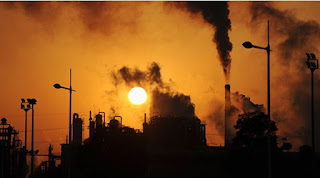As per the statement released by the government ‘India will strictly implement the Bharat Stage V or BS-V emission norm from 2019 in all vehicles.
The statement said ‘It has also been decided that BS-V fuel quality and emission norms will be implemented in the entire country from 2019 and BSVI emission norms for four-wheelers shall be implemented from 2023’. The three most important factors to be take care of will be the readiness of auto firms to shift through the stages, getting oil refinery firms to make the requisite fuel available in time for this transition, and at the same time ensuring that this does not drive up vehicle prices and running costs.
The move from Bharat Stage IV to V will increase the cost of diesel vehicle by Rs. 30-50K. The shift from BS V to BS VI will cost another additional Rs. 20-40K. On the other hand it is interesting to see that while government strictly wants to enforce the BS-V norm across the country, we highlight the fact that BS-IV which was introduced in 2010 is still not completely implemented in the whole country as currently only 38 cities follows it.
Bharat Stage norms are mostly based on the European regulations standards decided by the government to regulate the amount of air pollutants from all vehicles. Following a rapid rise in air pollution that's choking cities and fuelling green activism, there has been pressure on the government to speed up efforts at improving the fuel quality While it is interesting to see governments keen interest in implementing a better norm that will marginally reduce the air pollution percentage in the country we remain unsure of the fact how the Indian consumers will react to the steep increase in price of diesel vehicles.
If the government remain successful in its implementation of BS-V we see a rise in demand of used vehicles in India as the cost of acquiring a new one will increase marginally & that is where already established players like Shriram Automall – countries largest service provider for exchange of used vehicles will come in handy for every customer of used vehicle at fair price.
The statement said ‘It has also been decided that BS-V fuel quality and emission norms will be implemented in the entire country from 2019 and BSVI emission norms for four-wheelers shall be implemented from 2023’. The three most important factors to be take care of will be the readiness of auto firms to shift through the stages, getting oil refinery firms to make the requisite fuel available in time for this transition, and at the same time ensuring that this does not drive up vehicle prices and running costs.
(Image Source: images.indianexpress.com)
The move from Bharat Stage IV to V will increase the cost of diesel vehicle by Rs. 30-50K. The shift from BS V to BS VI will cost another additional Rs. 20-40K. On the other hand it is interesting to see that while government strictly wants to enforce the BS-V norm across the country, we highlight the fact that BS-IV which was introduced in 2010 is still not completely implemented in the whole country as currently only 38 cities follows it.
Bharat Stage norms are mostly based on the European regulations standards decided by the government to regulate the amount of air pollutants from all vehicles. Following a rapid rise in air pollution that's choking cities and fuelling green activism, there has been pressure on the government to speed up efforts at improving the fuel quality While it is interesting to see governments keen interest in implementing a better norm that will marginally reduce the air pollution percentage in the country we remain unsure of the fact how the Indian consumers will react to the steep increase in price of diesel vehicles.
If the government remain successful in its implementation of BS-V we see a rise in demand of used vehicles in India as the cost of acquiring a new one will increase marginally & that is where already established players like Shriram Automall – countries largest service provider for exchange of used vehicles will come in handy for every customer of used vehicle at fair price.

.jpg)














0 comments:
Post a Comment